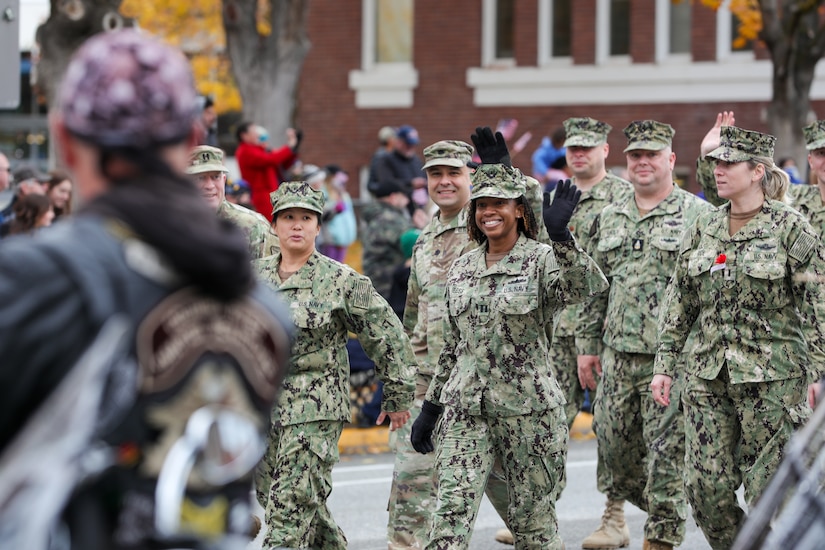Diversity, equity, and inclusion in the military are necessities for the United States, Bishop Garrison, the senior advisor to the secretary of defense for human capital and diversity, equity and inclusion said.
Garrison spoke to the Center for a New American Security today about the progress being made by the department and what still needs to happen.
Some 41 percent of the military identify as members of minority groups, and that number will grow larger, Garrison said. The military must be able to attract, train and retain them for the services to retain competitive edges, he said.
Fewer Americans between the ages of 18 to 24 — the prime ages for recruits — qualify for military service. "So, we have to find out ways of getting to a broader talent pool and broader interest groups in order to bring those highly qualified, talented individuals in," he said.
He noted that the percentage of minorities drops as they rise up the ranks. "Their numbers tend to begin to decline in terms of service; they tend to get out, and there could be a variety of reasons as to why that actually is," he said. "We need to take a very data-driven approach to get a better understanding as to what's actually happening here. What is the problem? And how can we address it?"
Garrison said the need for diversity, equity, and inclusion to be a consideration or a part of all decisions in the military.
"I would hope that as many leaders and members of the total force as possible see [diversity, equity, and inclusion] efforts as a force multiplier," he said. He wants them to see the program as a way to make the U.S. military more successful in achieving critical missions and in making forces more lethal.
Bringing in more talented infantry personnel or military intelligence analysts is the goal for any program, he said. When the military gets recruits from diverse backgrounds, there will be more innovative thought, more innovative solutions to incredibly complex and complicated problems that are facing the national security apparatus today, he said. "I want people to see [diversity, equity, and inclusion] as another tool in the toolkit and another way of solving these problems.
"It's not just something that has to be done because of some type of cultural ideology or culture wars that are going on — that's not the case at all. It is, again, not diversity for diversity's sake," Garrison said.


